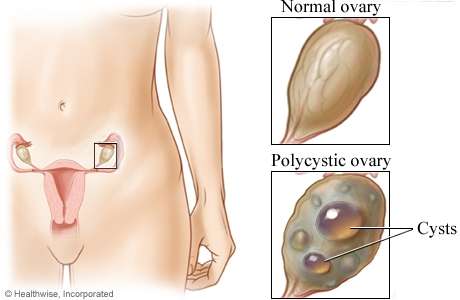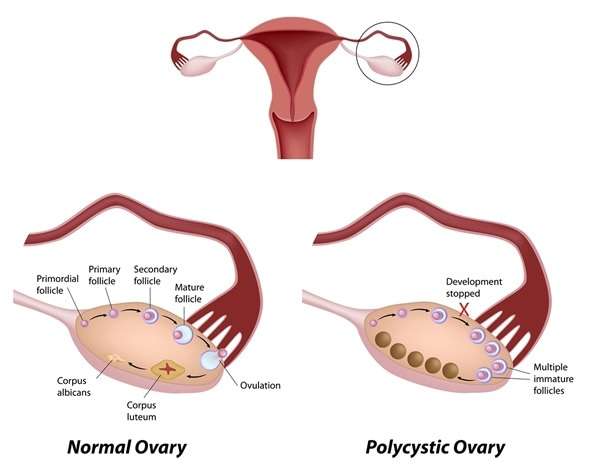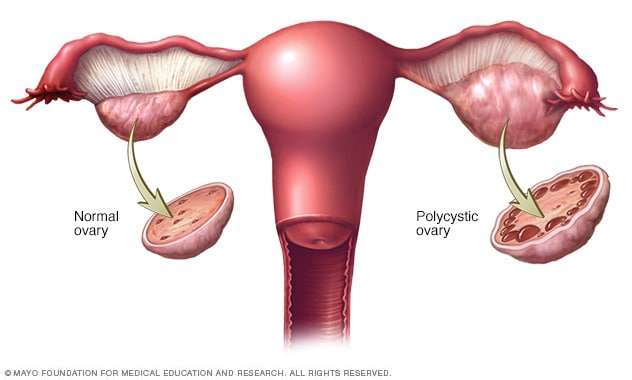Title: Understanding PCOS: Signs, Symptoms, Causes, Risk Factors, Diagnosis, Prevention, Diet, Lifestyle, and Homoeopathic Treatment
Introduction:
Polycystic ovary syndrome (PCOS) is a hormonal disorder that affects many women worldwide. It can lead to various symptoms and potential health complications. Understanding the signs, symptoms, causes, risk factors, diagnosis methods, prevention strategies, diet and lifestyle considerations, and the potential role of homoeopathic treatment is crucial for effectively managing PCOS. In this blog post, we will explore the key aspects of PCOS and its holistic approach to treatment.
Signs and Symptoms of PCOS:
1. Irregular menstrual periods: Infrequent, prolonged, or absent menstrual cycles.
2. Excessive hair growth (hirsutism): Increased hair growth on the face, chest, back, or other areas.
3. Acne: Development of acne on the face, chest, or upper back.
4. Weight gain: Difficulty losing weight or unexplained weight gain.
5. Hair loss: Thinning hair or hair loss on the scalp.
6. Darkening of skin: Skin discoloration, especially in areas such as the neck, groin, and underarms.
Common Causes of PCOS:
1. Hormonal imbalance: Elevated levels of androgens (male hormones) and insulin in the body.
2. Insulin resistance: Cells become less responsive to insulin, leading to increased insulin production.
3. Genetic predisposition: A family history of PCOS increases the risk of developing the condition.
4. Inflammation: Chronic low-grade inflammation in the body can contribute to PCOS.
Risk Factors for PCOS:
1. Family history: Having a close family member with PCOS increases the likelihood of developing the condition.
2. Obesity: Excess weight and obesity can worsen PCOS symptoms and hormonal imbalance.
3. Sedentary lifestyle: Lack of physical activity and a sedentary lifestyle can increase the risk of PCOS.
4. Insulin resistance: Insulin resistance or prediabetes can contribute to the development of PCOS.
5. Age: PCOS can develop at any age, but it is commonly diagnosed during the reproductive years.
Diagnosis of PCOS:
PCOS can be diagnosed based on the presence of specific signs, symptoms, and medical tests, which may include:
1. Medical history and physical examination: Discussion of symptoms and a thorough examination.
2. Blood tests: Measuring hormone levels, including androgens, insulin, and glucose.
3. Pelvic ultrasound: Imaging test to assess the ovaries for cysts or other abnormalities.
Prevention, Diet, and Lifestyle Considerations:
1. Maintain a healthy weight: Losing excess weight through a balanced diet and regular exercise can help improve PCOS symptoms and hormone balance.
2. Balanced diet: Emphasize whole foods, fruits, vegetables, lean proteins, and healthy fats. Limit processed foods, sugars, and refined carbohydrates.
3. Regular exercise: Engage in regular physical activity to promote weight management and improve insulin sensitivity.
4. Stress management: Practice stress-reduction techniques like meditation, yoga, or deep breathing exercises.
5. Quit smoking: Smoking can worsen PCOS symptoms and increase the risk of complications.
Homoeopathic Treatment for PCOS:
Homoeopathy offers an individualized approach to treating PCOS, aiming to address the underlying hormonal imbalance and restore overall well-being. Some commonly used homoeopathic remedies for PCOS include:
1. Sepia: Indicated for hormonal imbalances, irregular periods, and mood swings.
2. Pulsatilla: Useful for PCOS with irregular menstrual cycles, weight gain, and emotional sensitivity.
3. Natrum muriaticum: Recommended for PCOS with weight gain, hair loss, and excessive oiliness of the skin.
It is important to consult a qualified homoeopathic practitioner for an accurate diagnosis and individualized treatment plan based on your specific symptoms and overall health.
Conclusion:
PCOS is a complex hormonal disorder that requires comprehensive management. By understanding the signs, symptoms, causes, risk factors, prevention strategies, diet and lifestyle considerations, and exploring homoeopathic treatment as a complementary approach, individuals can effectively manage PCOS and improve their overall well-being. Always consult healthcare professionals for an accurate diagnosis and to create a comprehensive treatment plan tailored to your specific needs.



Leave a Message